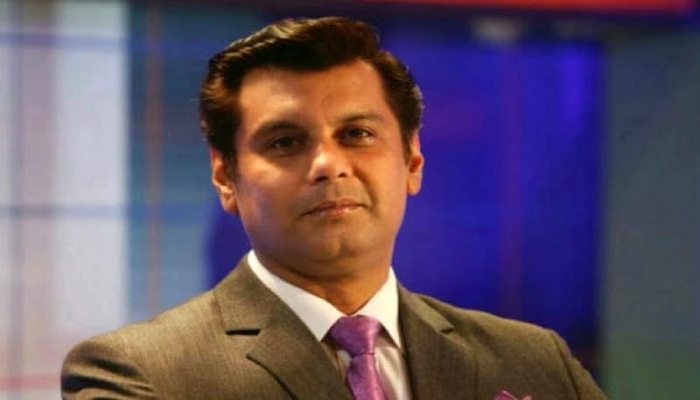THE CHANGED AFGHAN POLICY
0 comments | by The News

Rahimullah Yusufzai
Wednesday, May 06, 2015
It is rare for Pakistan to publicly denounce the Afghan Taliban movement, but Islamabad did just that on April 30 when it condemned the Taliban’s so-called ‘spring offensive’ launched recently in Afghanistan. Instead, the Foreign Office spokesperson Tasnim Aslam emphasised the need for peace and reconciliation in Afghanistan. It was yet another aspect of Pakistan’s evolving new Afghan policy aimed at supporting the nascent reconciliation process in Afghanistan. The contours of the peace and reconciliation process are still unclear, but its objective is clear because it aims to bring the long-running Afghan conflict to an end.
The spokesperson of the foreign ministry rejected Kabul’s charges of the influx of militants from Pakistan to take part in the yearly Taliban offensive, and called for closer cooperation to deal with the challenge of cross-border infiltration. However, it was obvious that Islamabad wasn’t happy with the Taliban’s new military operations as these would reduce the chances of any peace talks between the Afghan government and Taliban.
The sudden increase in Taliban attacks with the launching of the offensive, named ‘Azm’ (resolve), has already made many parts of Afghanistan insecure and caused displacement of people, particularly in the northern Kunduz province. This could put a halt to the improvement in relations between Afghanistan and Pakistan as the spate of allegations against each other may resume after months of relative calm. The charges made by the Afghan interior ministry regarding the recent influx of militants from Pakistan into Afghanistan is the first time since the inauguration of President Dr Ashraf Ghani’s government on September 29, 2014 that such allegations were made by Kabul and promptly rejected by Islamabad.
Pakistan has been trying to persuade the Afghan Taliban leadership to enter into peace talks with the Afghan government; it seems not much headway has been made yet towards this objective. The ongoing Pugwash conference in Qatar in which Afghans of different political persuasion, including the Taliban, are participating is just a gathering and not peace talks as is being wrongly portrayed. The Afghan government was hoping that the peace talks with the Taliban, through Pakistani mediation, would begin by early March. One heard from a number of high-ranking Afghan officials during a recent visit to Afghanistan that they were assured by Pakistan Army chief General Raheel Sharif and Inter-Services Intelligence (ISI) head Lt Gen Rizwan Akhtar that the Taliban were willing to hold direct peace talks with President Ghani’s government in the near future.
Though the Pakistan government and military hasn’t said anything publicly about any such assurance given to the Afghan government, one could see a bit of disappointment among Afghan officials that Islamabad has yet to deliver on this promise. This is due to the rather unrealistic expectations in Kabul that Pakistan holds the key to bring the conflict in Afghanistan to an end because the Afghan Taliban cannot refuse Pakistani military orders to fight or make peace. To be honest, Pakistan has some influence on the Mullah Mohammad Omar-led Taliban but it has no control over them.
The delay in arranging the peace talks has provided an opportunity to Afghans critical of Pakistan to question its motives and sincerity and also criticise President Ghani for reposing undue trust in Islamabad. President Ghani has lately been telling his visitors that he took a calculated risk by investing all his political capital in improving relations with Pakistan. With Chief Executive Officer Dr Abdullah less keen than him for holding unconditional peace talks with the Taliban and former president Hamid Karzai forever ready to question the warming of ties with Pakistan on account of his experience of dealings with Islamabad for 13 long years, President Ghani indeed is under pressure from various sides to abandon the path of reconciliation first with Pakistan – and then with the Afghan Taliban.
On its part though, Pakistan seems determined to improve relations with Afghanistan and play its role in reconciling the Taliban with the Afghan government. One of the strong proponents of this policy is Pakistan’s Foreign Secretary Aizaz Ahmad Chaudhry, who has missed no opportunity and minced no words to explain and defend the change in his country’s viewpoint regarding the Afghan conflict. A few days ago, he went so far as calling upon the Afghan Taliban to stop their ‘spring offensive’ and instead directly talk to the Afghan government. He made it clear that Taliban have to talk to Kabul and pursue their objectives through peaceful means.
Aizaz Chaudhry has been articulating such views at every available forum. One of his recent speeches at a seminar in Islamabad was the most elaborate and clear explanation of Pakistan’s present policy toward Afghanistan, but it was largely ignored by the media. He was the keynote speaker at the seminar on ‘Achieving peaceful and prosperous bilateral relations between Afghanistan and Pakistan’ organised by the Pakistan office of the German foundation, Friedrich- Ebert-Stiftung (FES).
The seminar was part of the regular bilateral meeting of the Afghanistan-Pakistan Policy Groups. The policy groups were formed under the ‘Envisioning Afghanistan Post-2014’ project that brought together around 60 experts from 11 countries to hold a series of meetings in which a regional declaration was formulated to help stabilise Afghanistan. It is a major Track II initiative with a unique format and the fact that it is being sustained shows its utility.
The Islamabad seminar was a public event and was preceded by a roundtable conference on Afghanistan-Pakistan bilateral relations at the National Defence University, Islamabad. The other sessions were closed and involved the 20 or so members of the Afghanistan Police Group and the Pakistan Policy Group along with the few FES hosts. In the bilateral sessions, the Afghan and Pakistani members openly discussed the disputes between the two countries in a spirit of goodwill and sincerity. At times, they agreed to disagree without causing offence to each other.
In his speech at the seminar, Foreign Secretary Aizaz Chaudhy made some interesting statements. That Pakistan has vested interest to have peace in Afghanistan, that Islamabad has no wish to use Afghan Taliban as an asset, but to use its contacts with them to facilitate return of peace, that Taliban could possibly gain more through talks than fighting, that Pakistan doesn’t subscribe to any new ‘Great Game’ in the region, that there is now unprecedented cooperation between the Afghan and Pakistani militaries and intelligence agencies and that draft proposals have been exchanged for better border management, that Kabul has become sensitive to Islamabad’s concerns regarding India’s role in destabilising Pakistan’s Balochistan province and Fata via Afghanistan, and that the use of Afghanistan and Pakistan’s soil would not be allowed to destabilise each other.
In other parts of his speech, Aizaz Chaudhry described President Ghani as a visionary leader and pointed out how his visit to Pakistan changed the dynamics of Pak-Afghan relations as goodwill towards each other replaced recrimination and disputes on Afghan transit trade were quickly resolved. Chaudhry termed the Afghan transit trade through Pakistan as an obligation rather than a favour and talked of plans to build the Peshawar-Kabul Motorway and complete the many development projects for the Afghan people with the $500 million donated by Pakistan for war-ravaged Afghanistan’s reconstruction.
One point that the foreign secretary highlighted was the possibility that the Taliban may not launch their annual ‘spring offensive’ this year or that some elements may do so to distract attention from the peace process. Now that the ‘spring offensive’ has been launched apparently against Pakistan’s wishes, Islamabad would have to do damage control so that the hopes raised by the improvement in Pak-Afghan relations remain alive. Afghan delegates at the Islamabad seminar remarked that they couldn’t believe their ears when the foreign secretary spoke. They termed it the clearest explanation of Pakistan’s changed Afghan policy and one which could be looked at as a roadmap to stabilise both Afghanistan and Pakistan.





